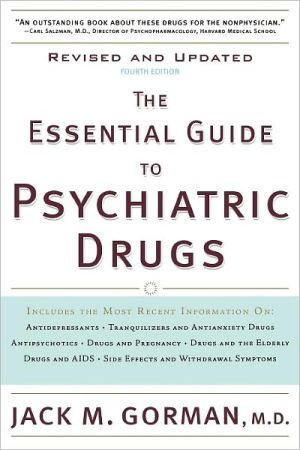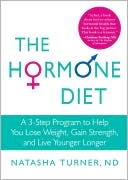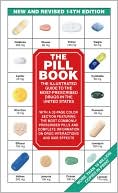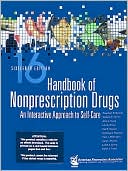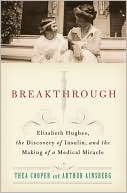Essential Guide to Psychiatric Drugs
More than 150,000 copies in print, 4th Edition\ GET THE FACTS. GET THE BEST TREATMENT. GET BETTER\ The Essential Guide to Psychiatric Drugs has become a classic and indispensable resource for the layperson and professional alike. Informative, accessible, and easy to use, this newly revised and updated resource presents comprehensive information on the latest drugs and research, covering most adult mental health problems. It also includes balanced information on controversial topics like the...
Search in google:
The Essential Guide to Psychiatric Drugs has become a classic and indispensable resource for the layperson and professional alike. Informative, accessible, and easy to use, this newly revised and updated guide presents comprehensive information on the latest drugs and research and covers most adult mental health problems. It also includes balanced information on controversial topics such as the risk of suicide from antidepressants and the risk of obesity and diabetes from antipsychotics.This book will help people with psychiatric problems, as well as their concerned families and friends, better understand when drug therapy should be considered, which drugs should be used, for how long, and what side effects are expected. The Essential Guide to Psychiatric Drugs includes the latest information on: Antidepressants, Antipsychotics, Side effects and withdrawal symptoms, Specific usage, dosage duration, and efficacy.About the Author:Jack M. Gorman, M.D., a professor of psychiatry at Columbia University Library Journal Much ignorance and many misconceptions exist about psychotropic prescription drugs (antidepressants, tranquilizers, antipsychotics, hypnotics, etc.), since people are often reluctant to ask questions about these drugs, even though they are among the most heavily prescribed. This is reason enough to recommend the book; the only minor quibble is some unnecessary repetition in the text. The information is no more technical than is needed to deal with this complex subject; most current comparable titles are aimed at the health practitioner. This book is also far more comprehensible than such readily available titles as the Physicians' Desk Reference .-- Mary Chitty, Massachusetts Coll. of Pharmacy & Allied Health Sciences, Boston
List of TablesWho Should Use This Book and How Should It Be Used?AcknowledgmentsIntroduction to the Third EditionDrug Directory1Be an Informed Consumer!32How Do I Know If I Need a Psychiatric Drug?93Psychotherapy, Drugs, or Both?154How Do I Get Psychiatric Drugs?215What Are Side Effects?316How Long Should I Take a Psychiatric Drug?357Drugs Used to Treat Depression478Drugs Used to Treat Anxiety1219Drugs Used to Treat Manic Depression (Bipolar Mood Disorder)17310Drugs Used to Treat Schizophrenia19711Sleeping Pills25512Drugs Used to Treat Drug Abuse28513Treating the Violent Patient30714Family, Environment, and Genetics31315Weight Loss and Weight Gain31916Sex and Psychiatric Drugs32717Treating the Elderly33318Psychiatric Drugs and Pregnancy34119AIDS: Dealing with Psychiatric Problems34720Generic Versus Brand: What's in a Name?35521How Psychiatric Drugs Work361A Final Note371Glossary of Terms375Suggestions for Further Reading383Index386
\ Library JournalPsychopharmacology has changed so radically in the last few years that Gorman (psychiatry, Mount Sinai Sch. of Medicine, New York) has updated this clear, balanced, and authoritative guide three times since the first edition appeared in 1997. Gorman stresses the field's human aspect: he promotes good history taking (at least an hour's worth) by the treating psychiatrist, encourages patients and family members to ask questions, and emphasizes the value of feeling better over other considerations, including insight. He sees the worth of psychotherapy, giving examples where medication is not appropriate, and addresses well the subject of electro-convulsive therapy (i.e., shock therapy) in a positive light. Gorman no longer takes fees from drug companies, is somewhat critical of their promotional ties to physicians, and strongly supports the use of cheaper generic medication when available. The chapters review all the usual syndromes, so the book is a general guide to symptoms and diagnoses as well as to drug treatment. Since most psychiatric drugs are prescribed by nonpsychiatric physicians, this work will be useful for them and for nurse practitioners as well as for patients and families. Essential for all general libraries.\ —E. James Lieberman\ \ \ \ \ \ Library JournalMuch ignorance and many misconceptions exist about psychotropic prescription drugs (antidepressants, tranquilizers, antipsychotics, hypnotics, etc.), since people are often reluctant to ask questions about these drugs, even though they are among the most heavily prescribed. This is reason enough to recommend the book; the only minor quibble is some unnecessary repetition in the text. The information is no more technical than is needed to deal with this complex subject; most current comparable titles are aimed at the health practitioner. This book is also far more comprehensible than such readily available titles as the Physicians' Desk Reference .-- Mary Chitty, Massachusetts Coll. of Pharmacy & Allied Health Sciences, Boston\ \ \ BooknewsIn this guide for consumers and practitioners, Dr. Gorman (psychiatry, Columbia U.; director, NY State Psychiatric Institute) presents the latest psychotropic medications (e.g. Effexor, Zyprexa, and Depakote)<-->detailing indications, side effects, and other sometimes controversial issues. Includes glossary, reading list. Annotation c. by Book News, Inc., Portland, Or.\ \ \ \ \ BooknewsOne terrific pocket (3.25x6.75") guide, providing expert but nontechnical psychiatric drug information, revised and updated from the first (hardcover) edition of 1990. Annotation c. Book News, Inc., Portland, OR (booknews.com)\ \
